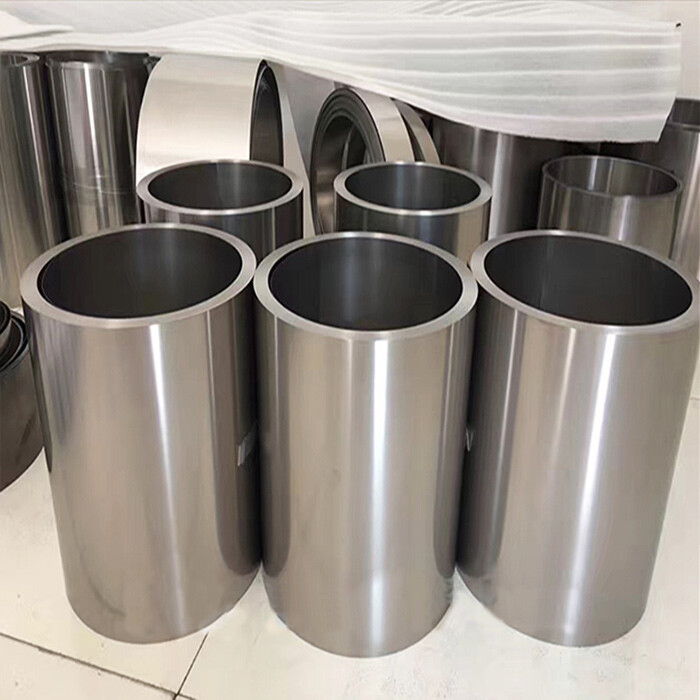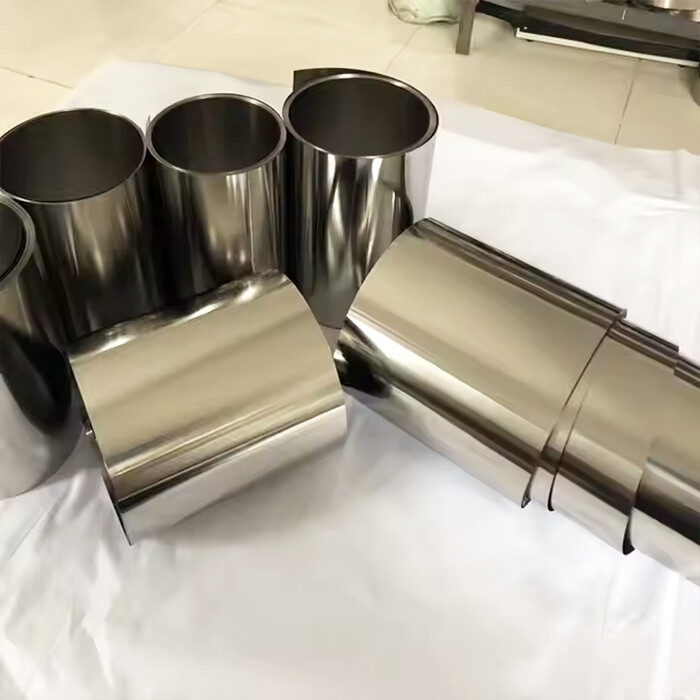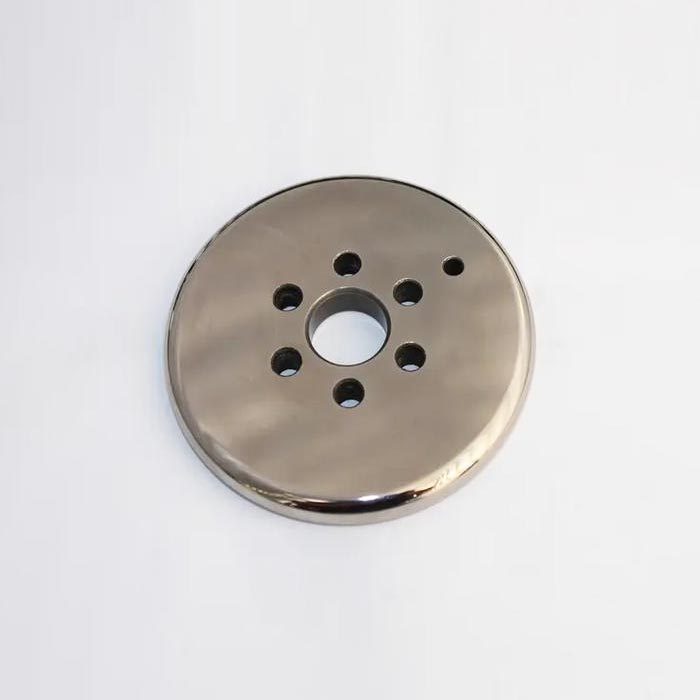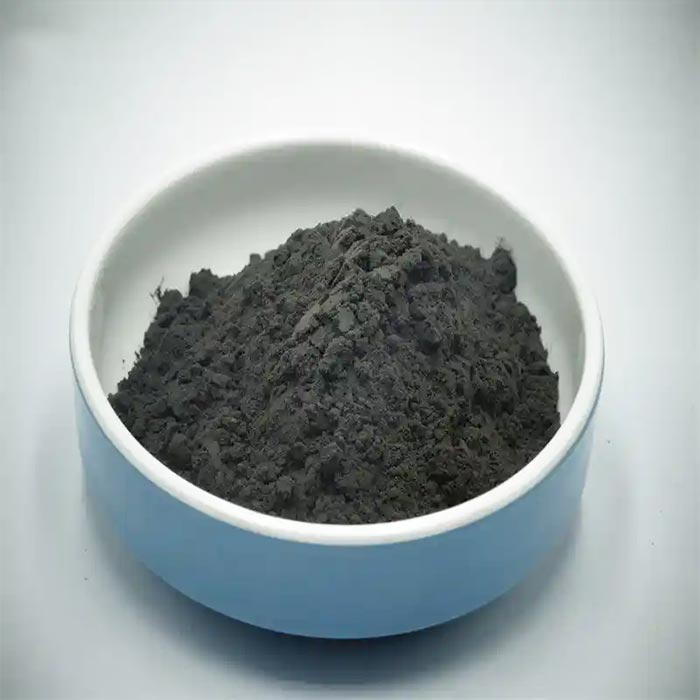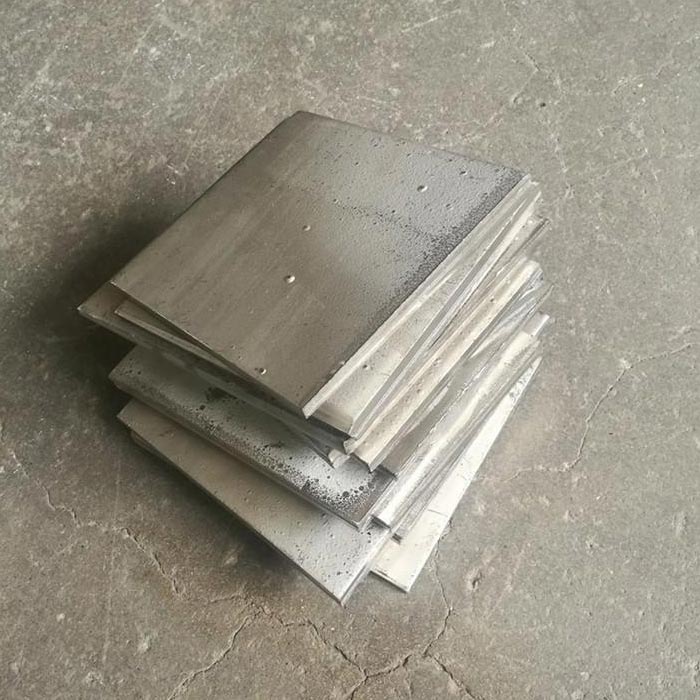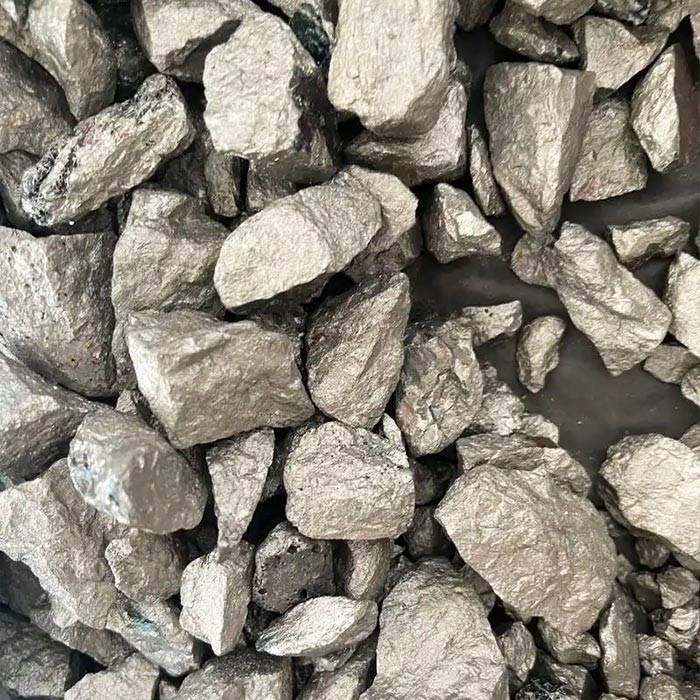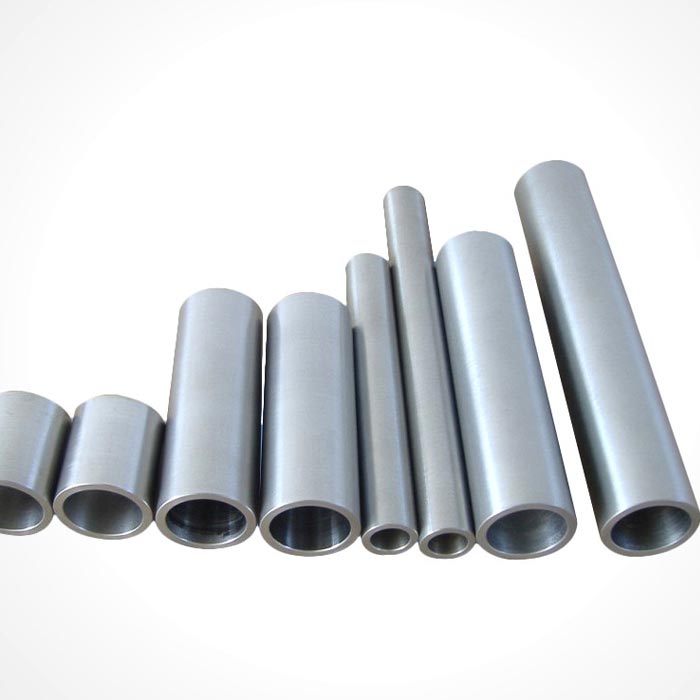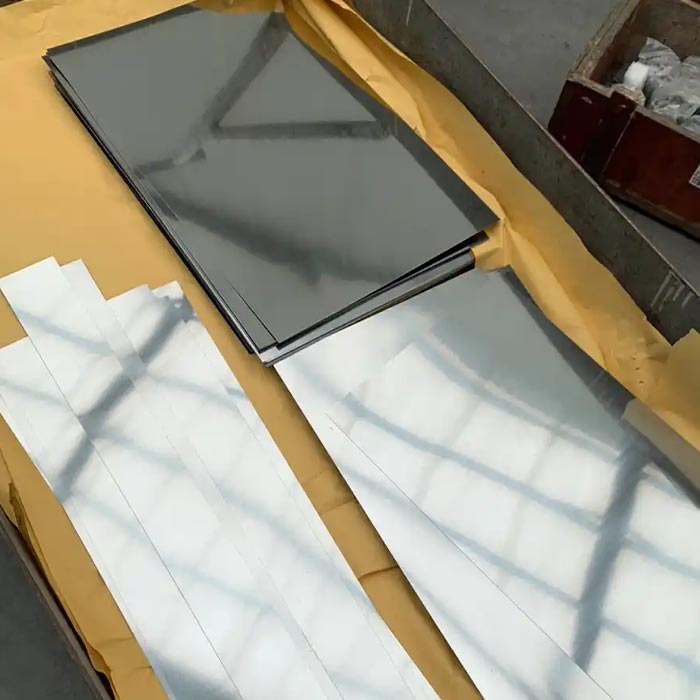
PRODUCTS
Search
Categories List
Titanium foil is a titanium plate, strip, coil or sheet with a thickness of 0.1mm or less. Another indicator for evaluating the thickness of titanium foil is the weight per unit area, such as g/m or oz/fi, etc. The larger the value, the greater the thickness. The width of titanium foil is cut according to the user's requirements. However, the larger the width during manufacturing, the higher the productivity. The length of the roller body determines the maximum width of the rolled foil. The wider, thinner and harder the rolled piece is, the more difficult it is to roll. The maximum width of rolled titanium foil is about 600mm. Titanium and alloy foils are mainly used in electronics, aerospace, instrumentation and other departments.
PRODUCT FEATURES
Titanium foil is mainly used in aerospace, navigation, nuclear power, electronics, chemicals, petroleum, precision manufacturing, medical and pharmaceutical industries.
Titanium has six major characteristics:
1. High strength: Titanium has a better strength/density ratio than other metals, and can be made of titanium into components with high strength, good rigidity and light weight. Titanium is used in aircraft engines, frames, skins, fasteners and landing gear.
2. Anti-corrosion: Compared with stainless steel, titanium alloy has better corrosion effect in humid air and seawater, and titanium has great resistance to pitting corrosion, acid corrosion and stress corrosion. Titanium resists corrosion from alkali, chloride, chlorinated organic matter, sulfuric acid, nitric acid.
3. High temperature resistance: The application temperature of titanium is higher than that of aluminum alloy. Titanium can work for a long time at 450-500℃. Titanium alloy stil has high strength at a working temperature of 150-500℃. The working temperature of titanium can reach 500℃.
4. Low temperature resistance: When working under low or ultra-low temperature conditions, titanium alloy still has its mechanical properties. Titanium alloy with low temperature resistance and extremely low gap still has good ductility, so titanium alloy is a good low temperature structural material.
5. Environmentally friendly metal: The thermal conductivity of titanium is lower than that of carbon steel or copper, but titanium has very good corrosion resistance, so the thickness of titanium can be greatly reduced, and the heat exchange mode is drop-by-drop condensation between titanium and steam. This mode reduces the heat transfer resistance, and there is no scaling on the titanium surface, which makes the thermal conductivity of titanium better.
6. Good thermal conductivity: Titanium is a non-magnetic metal and cannot be magnetized in a large magnetic field. Titanium is also non-toxic and compatible with blood, so it is used in the medical field.
Q1: Where is your company located?
A: Jinan, Shandong
Q2: How is the quality control of your company?
A: We attach great importance to quality control from the beginning to the end, and our QC department will strictly check all goods before shipment. Third-party inspection is welcome.
Q3: Can customer brand be made?
A: Yes, OEM is welcome if the quantity exceeds the MOQ.
Q4: Where is your loading port?
A: Qingdao Port.
Q5: Do you provide free samples?
A: Yes, free stock samples will be provided, but the freight will be borne by the customer. Please contact us to check the freight according to the customer's address.
